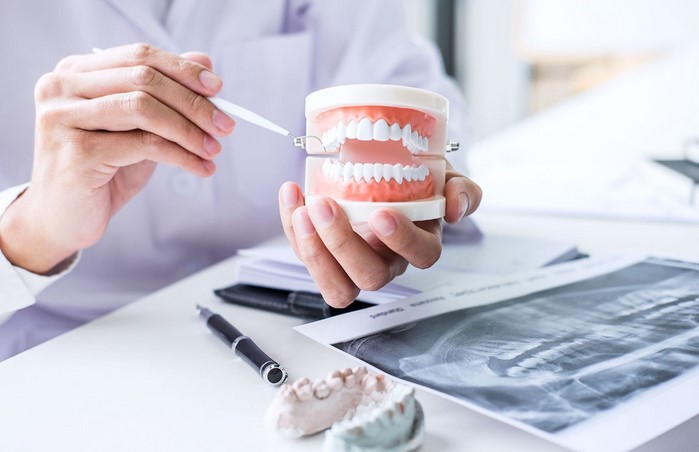
The world of dentistry has come a long way since its inception. From ancient practices of tooth extraction to the highly advanced dental technologies of today, the field has evolved to encompass a wide range of approaches aimed at maintaining oral health and enhancing smiles. One such approach that has gained momentum in recent years is integrative dentistry, which seeks to bridge the gap between traditional dental practices and alternative therapies. This holistic approach is reshaping the way we perceive oral care and is transforming the patient experience.
Understanding Integrative Dentistry:
Integrative dentistry is a comprehensive and patient-centered approach that combines conventional dental treatments with complementary and alternative therapies. It recognizes that oral health is intricately linked to overall well-being and seeks to address not just the symptoms but also the underlying causes of dental issues. By integrating various disciplines, such as nutrition, herbal medicine, acupuncture, and mindfulness, integrative dentistry aims to provide a more well-rounded and holistic approach to oral care.
The Traditional Dental Paradigm:
Traditional dentistry, often referred to as conventional dentistry, focuses primarily on diagnosing and treating dental problems using established techniques and procedures. These practices include routine check-ups, cleanings, fillings, root canals, and various restorative procedures. While traditional dentistry has been effective in addressing many oral health issues, it sometimes falls short in considering the broader impact of dental treatments on a patient’s overall health.
The Rise of Alternative Therapies:
In recent years, there has been a growing interest in alternative therapies and holistic approaches to health and wellness. This trend has extended to the field of dentistry, where patients are seeking treatments that align with their preferences for natural and non-invasive interventions. Alternative therapies such as herbal mouth rinses, ozone therapy, and acupuncture are gaining popularity as patients look for ways to complement or even replace conventional dental treatments.
Bridging the Gap: Integrative Dentistry in Action:
Integrative dentistry aims to provide a balanced approach by drawing from both traditional and alternative practices. For instance, a patient with gum disease might receive not only the standard periodontal treatment but also be guided on dietary adjustments that support gum health and inflammation reduction. This multifaceted approach acknowledges that oral health is affected by factors beyond the mouth and empowers patients to take an active role in their well-being.
Key Principles of Integrative Dentistry:
1. Personalized Treatment: Integrative dentistry recognizes that each patient is unique. It takes into account an individual’s medical history, lifestyle, and preferences to develop a personalized treatment plan that addresses specific needs.
2. Prevention and Education: Rather than focusing solely on treating problems as they arise, integrative dentistry places a strong emphasis on preventive measures. Patients are educated about proper oral hygiene practices, nutrition, and lifestyle choices that can contribute to long-term oral health.
3. Collaborative Care: Integrative dentistry often involves collaboration between dental professionals and practitioners from other fields, such as nutritionists, naturopaths, and acupuncturists. This interdisciplinary approach ensures that all aspects of a patient’s health are considered.
4. Minimally Invasive Interventions: Whenever possible, integrative dentistry seeks to use minimally invasive techniques and natural interventions before resorting to more invasive procedures. This approach aligns with the preference for gentler interventions that many patients seek.
5. Evidence-Based Practice: While embracing alternative therapies, integrative dentistry does not disregard the importance of evidence-based practice. It combines the wisdom of traditional practices with the latest scientific research to ensure the effectiveness and safety of treatments.
Challenges and Considerations:
Integrative dentistry, like any evolving field, faces its share of challenges. One of the primary concerns is ensuring that the alternative therapies integrated into dental care are backed by credible research and scientific evidence. Additionally, there can be resistance from within the dental community to adopt practices that are not firmly rooted in traditional dental education.
The Future of Integrative Dentistry:
As patients continue to seek more comprehensive and holistic approaches to their health, integrative dentistry is poised to play a significant role in the future of oral care. The integration of traditional and alternative practices has the potential to revolutionize the dental experience, promoting not only healthier smiles but also overall well-being.
In conclusion, integrative dentistry represents a paradigm shift in the field of oral care. By merging the best of both traditional and alternative approaches, this holistic model recognizes the interconnectedness of oral health and overall wellness. As more patients recognize the benefits of personalized, preventive, and collaborative dental care, integrative dentistry is likely to gain even more traction, fostering a new era of oral health that goes beyond just teeth and gums.
